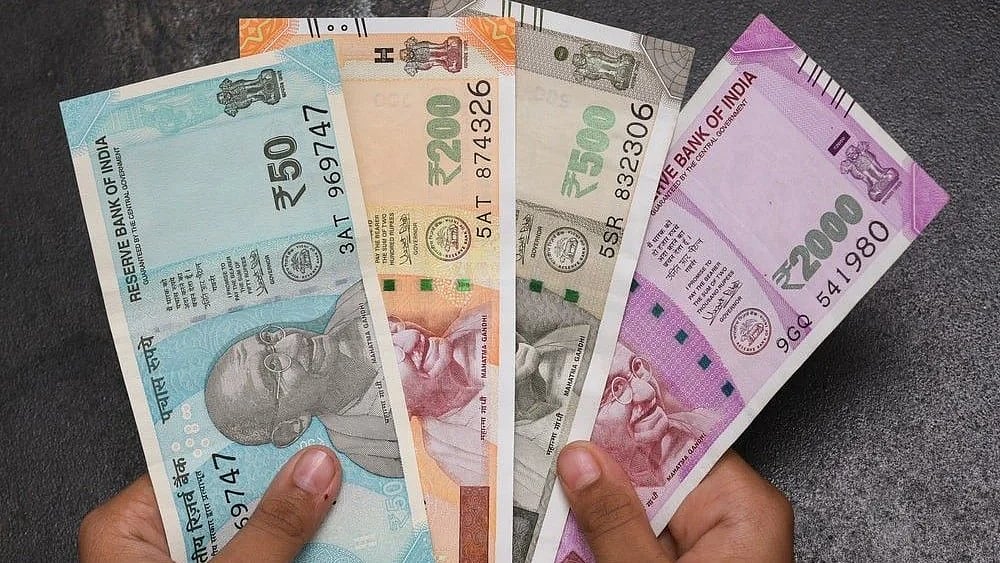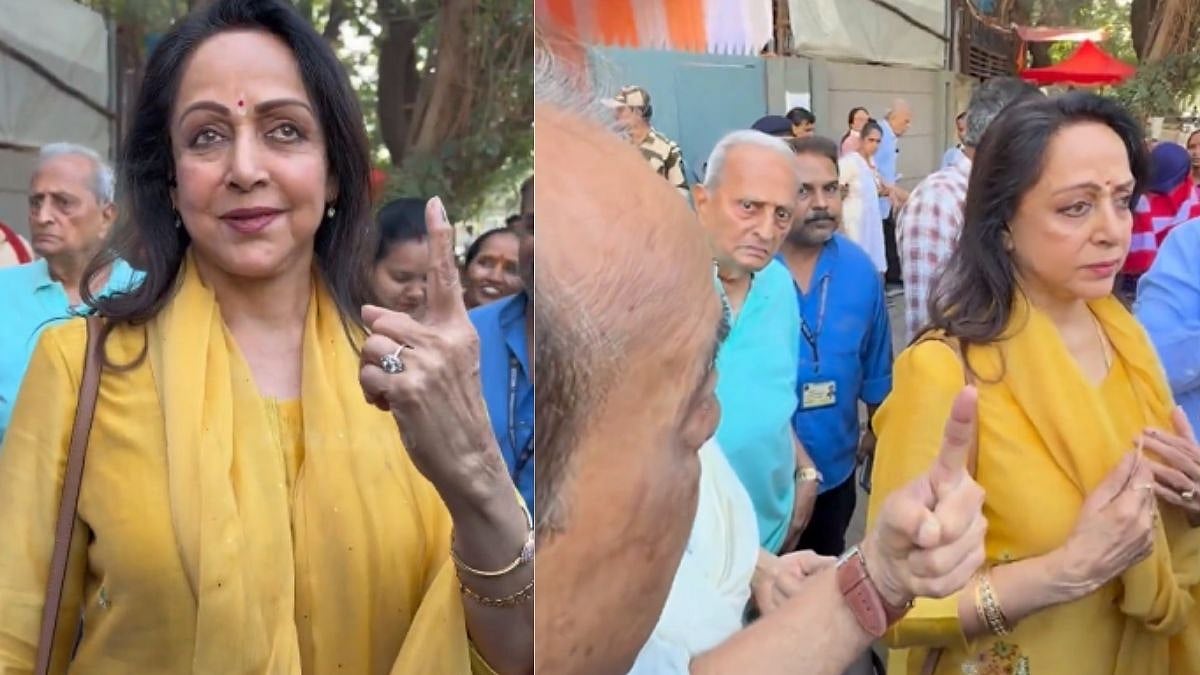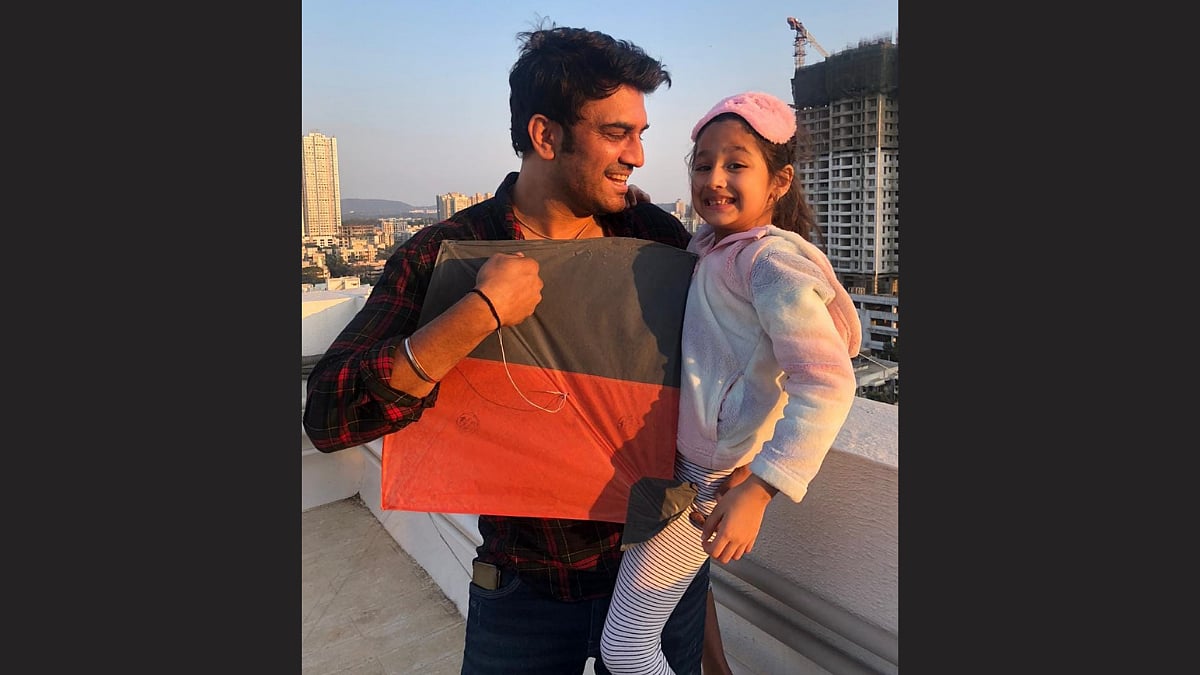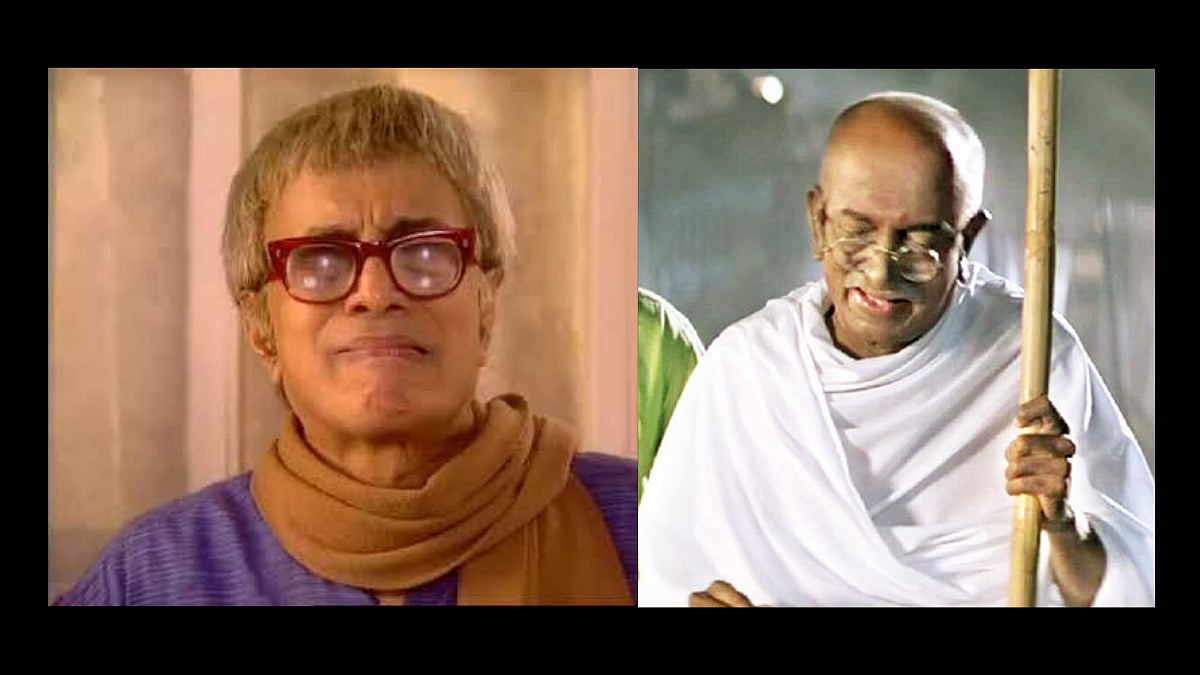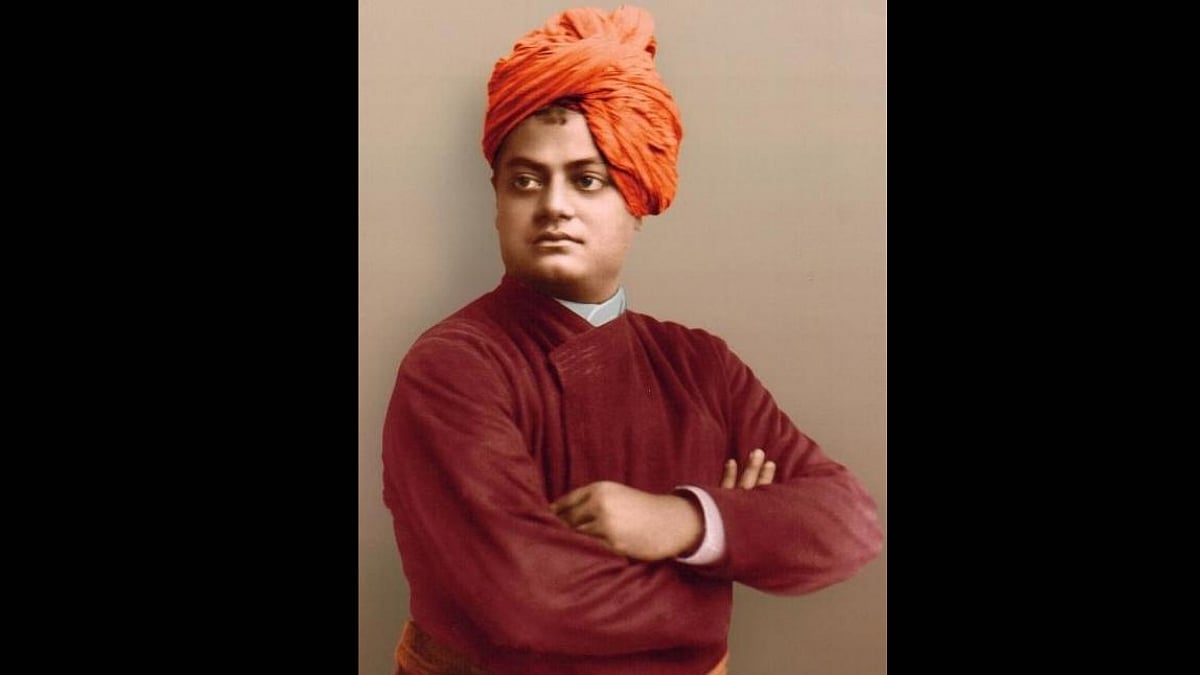On the occasion of National Mails Day on October 16, 2021, India Post, Mumbai Region, took a tech-tonic leap and launched a new mobile application, Know Your Postman. The mobile application is a brainchild of Swati Pandey, Postmaster-General (PMG) of Mumbai Region. The unique android application designed and created by Mumbai Postal Region will enable Mumbaikars to get the details of their beat postman when searched by locality, area, post office name and Pin Code; more than 86,000 localities of Mumbai city and suburb are readily available in the database. There are 89 delivery post offices in Mumbai city, around 2,000 postmen/women with mobile devices, and around 2 to 2.5 lakh accountable mails, which includes speed posts, registered posts, Aadhar cards, passports, etc. that are delivered every day. "Know Your Postman is an initiative towards digitisation of the postal network that will enable the working population of Mumbai to directly communicate with their beat postman and facilitate delivery as per their convenience," explains Pandey, Indian Postal Services officer and administrative head of 229 post offices across Mumbai city and suburb.
Earlier, the postal department was synonymous with letters, parcels, money orders, telegrams, etc. But today, India Post is much more than these, remaining relevant by adding a plethora of services under its wings. A significant part of it deals with financial inclusion vis-a-vis savings. For the unversed, the Post Office Savings Bank provides some of the best small scale savings schemes to individuals. India Post also delivers old-age pensions at customers' doorsteps, does Aadhar enrolment and updation work in post offices, and has a formidable clientele on the Business Development wing.

(from left) Ashwini Powar, Amrita Jogi, Vaishali Chogale, Shreeya Warang, and Neha Kumar from Mahim Bazar All-women Post Office
Besides these, the India Post Payment Bank instantly transfers money to any part of the country if the Aadhar card is linked with the customer's bank account. "So, the bouquet of services that we provide in present days makes us completely relevant, and we are the leading organization in public service across the country," says Pandey, introducing two other remarkable women from India Post — postwoman Radhika Milind Parkar and Sub Postmaster Amrita Jogi — who in some measure are a reflection of the changing face of India Post.
'I get a lot of respect because I am a postwoman'
As a kid born in a non-descript Kunkeshwar village in Maharashtra, postwoman Radhika Milind Parkar, 58, fondly remembers the sweet tinkle of the postman's bicycle bell that announced his arrival in the neighbourhood. "There's something beautifully nostalgic about that sound. It was a part of our quotidian existence. I never received a letter back then, but I must admit that I waited anxiously to see the man whizz past the lanes and bylanes, handing letters, parcels, telegrams, and money orders with clockwork precision between 1-1.30 pm daily," Parkar recounts.

Radhika Milind Parkar
Her relationship with India Post, which also happens to be the largest postal network globally, is thicker than blood, as she jokingly mentions. Parkar's father was a postmaster, while his uncle and aunt served in the post office, so joining the postal network was the obvious choice. "I had joined as an Extra Department Stamp Vendor in 1982 at a salary of Rs 90. My first posting was at Malabar Hill Post Office. I had teething trouble because the task at hand seemed arduous to me. It was my first. I would crib to myself and complain to my family that I didn't want to go to the office and behaved like a truant school kid for the first few days. But I soon settled and have always felt at home in the Post Office," she recounts.
Her salary had touched Rs 500 by the time she appeared for the Departmental Exam in 1990, cleared it and joined as a postwoman at Grant Road PO. "I was posted there till 2008, and have been at Mahim PO since then," she says. A mother of two boys, one of whom is specially-abled, Parkar thanks her stars for bagging this job and staying put all through. "The biggest takeaway for me has been the support of my colleagues and the security of this job that helped me give time and attention to my younger son, who is deaf and mute. The department and people have been kind. My son recently graduated and is currently pursuing an animation course. It was possible only because all these people stood by me all through," says Parkar.

Her shift starts at 8 am, and the first task is to differentiate and sort the ordinary mail from accountable letters like speed post, registered post, parcel, etc., then arrange the ordinary mails area-wise, and get the accountable ones listed and scanned. In between all this work, she quickly changes her uniform, grabs a bite or two before stepping out of the post office at 10 am to distribute these posts. While distributing posts, she gets to know the people, shares a laugh or two, does some chit-chat, and moves on to the next delivery. She confesses that small acts of kindness from the people she meets during the round make it worthwhile.
"The khaki salwar-kameez with the India Post logo is my identity. It gets me immense respect from people. I am familiar with the nook and corner of Mahim, and the people I have been serving are like my extended family members. A few of them even call me to check my well-being on the days when they don't see me around in the area," she says, beaming with pride talking about people in and around her service area, who are the biggest asset that she's accumulated over the years. She goes door-to-door on foot, and trudges back to the post office by 3 pm, and calls it a day by 4 pm. "The goodwill earned by me is my actual gratuity. I will be able to live off that alone after I retire in another two years," she adds.
The work that she does as part of her job is the same as that for a man. "Work doesn't differentiate between our genders, and even we don't. We walk shoulder to shoulder and give each day our best, delivering letters and other items from door-to-door, day and night," says Parkar.
'India Post is my survival kit'
It was a red-letter day for Amrita Jogi, 52, Sub Postmaster of Mahim Bazar PO, when she received a letter from the Department of Post way back in the early Nineties. "I had received many letters, but that one remains special to date. It was my appointment letter. I had made it as a Postal Assistant, and a few days later, I got another one informing me that I had cleared the recruitment exam for the Life India Corporation. I chose the former because it was my first," says Jogi, reminiscing her fondest memories of letters.

Amrita Jogi
Her father had passed away in 1988 when she was still in college, so this news bode well for her family of four. "My elder brother and I used to fend for the family. We took it upon ourselves so that my mother didn't have to step out of the house for work," she says. A government job brought along a lot of joy to the family. "I was a tad excited about this offer. My family was delighted. It meant an end to hardships because there would be a regular income and job security, and we couldn't ask for more," says Jogi, who joined as Postal Assistant at Tulsiwadi PO in 1993.
Today, she is at the helm of affairs at the all-women Post Office in Mahim Bazar inaugurated on the eve of Republic Day last year. In all these years, she has seen India Post adapt to the changing times and adopt newer ways to serve the customers. "All postal business transactions are made available with proper display of services at Mahim Bazar PO. All types of saving bank services, Multipurpose Counter Machine services, India Post Payment Bank services, Common Service Centre services, Aadhar services, etc., are offered here and are provided by women staff only," she says.

The response of the public is overwhelming, and this PO sees a high footfall, especially women. "People appreciate our services a lot. It motivates us to work with more enthusiasm. Many customers are astonished to find that an all-women staff runs this office," says Jogi. She attributes the smooth run to her colleagues at the PO, who leave no stone unturned, come what may. "The staff here is always on its toes. Despite facing a lot of pressure, they handle it patiently. The staff is efficient and adept at work, and that makes me so proud of all of them," she states.
During the pandemic, India Post played a vital role in delivering medicines to needy people, banking facilities, and even Aadhar services, apart from regular work. "When people were scared to step out of their homes, India Post took the initiative to provide essential items to the people, deliver PPE Kits to hospitals, etc. Also, we offered Aadhaar-related services to people as it was indispensable for COVID19 vaccination purposes," says Jogi.
The ratio of the postwoman to the postman in the country is approximately 10% to 15%, but change is round the corner. "Of late, I have seen the change around me. Women are approaching this field with enthusiasm and sit for exams held by the department of post to become a postwoman, and that's so heartening," says Jogi, a widow with a 14-year-old son, who stresses how the job alone has helped her stay, afloat all this while. "It is my survival kit," she adds.
'Postmen and postwomen are our brand ambassadors'
Indian Postal Services officer Swati Pandey holds the post of the PMG of Mumbai Region. Still, deep at heart, she is a storyteller who uses different mediums to express herself creatively. Pandey is the first officer of the India Post to win a National Film Award. Her documentary on Netaji Subhas Chandra Bose, Elephants Do Remember, was adjudged the Best Biographical Film at the 67th National Film Awards 2019. Talking about her cinematic journey, she says, “I was passionate about films since childhood. I used to watch all kinds of films, whether it is Hollywood, Bollywood, regional, commercial or art, everything and nourished the idea of film making deep within my heart! My deputation to Films Division, Mumbai, as Director of Administration brought me in contact with doyen filmmakers such as Adoor Gopalkrishna, Jahnu Baruah, Jabbar Patel, Shyam Benegal, Paban Haobam and others. The stint ignited the flame of filmmaking in me and helped me to understand the nitty-gritty of filmmaking as an art.”

Swati Pandey
She met the protagonist of her film, Rama Khandwala in 2018, who enabled her to realize a long-cherished dream, and that is how Elephants Do Remember happened. “I felt people should definitely watch a slice of the intriguing life of Ms Khandwala; her involvement with larger than life leader Netaji Subhash Chandra Bose and INA in the Indian war of independence to her emergence as the oldest tourist guide of India,” adds Pandey.
Nine post offices across Mumbai city and suburb are manned by women. “Earlier there were fewer postwomen, considering the outdoor mode of work that included door to door visits and long working hours. However, with time more and more women have started joining the service, and in present days, the ratio has reduced,” says Pandey.
She was instrumental in launching the Smartest Postmen Campaign and Digital Identity of Postmen. Talking about the initiative, she observes how the image of the postman/postwomen has undergone a tech-tonic shift over the years. “We visualize a postman as a lean, grey-moustached, old man delivering letters to us, but the real fact is that young, smart, tech-savvy cool gentlemen have long replaced that old, grey-moustached men with smartphones in bikes and two-wheelers delivering mails to us. Postmen and postwomen are the brand ambassadors of India Post who have undergone a major makeover in the present era. These two campaigns were initiated to change the viewpoint of people towards post office and postmen,” she says.

The smartest postmen campaign awards the title to one postman and one postwoman from every post office in Mumbai city and suburb based on their smart approach, proper dress up and chutzpah, while the Digital Identity of Postmen is an effort to emphasise the digitalization of India Post, where you can scroll on the mobile application and get details of your beat postmen. “Both the initiatives are to change the face of postmen/postwomen before the public and make them feel better in look and smarter at work,” says the PMG.
The deadly Coronavirus made her launch SOFT or Supporting Officials for Treatment. “Mumbai was the worst affected city during the first wave of COVID. Helplessly watching my team succumb to the deadly virus, depressed and agitated me. SOFT was the outcome of this emotional trauma. I formed a team of officers who would extend help from admission in hospitals to delivering medicines and groceries at the doorsteps of the COVID-affected members of India Post, Mumbai Region,” she states.
To build a proper communication chain, she coordinated with the local authorities, local hospitals, and nursing homes to make beds available immediately for the patients, 24x7. “We coordinated with the medical and grocery shops as well to readily provide service to my team members. SOFT was an immensely successful initiative that the Directorate later adopted as part of their HR policy,” adds Pandey.
She started the Heritage Walk of Mumbai GPO in 2019. “I realized that this building is a magnificent example of art and a heritage building that should be opened to the general public to understand and relish its beauty and grandeur,” says PMG. Till now, her team has curated more than 10 walks across the building and was also a part of the Kalaghoda Heritage Walk 2020.
She has also authored a book titled Dawn under the Dome documenting the illustrious history of the Mumbai General Post Office with one of her staff members, Orchida Mukherjee.

Orchida Mukherjee
Appreciating the ardent passion of her superior, Mukherjee says, “While planning the heritage walk of GPO, we used to spend hours walking around this marvellous building, discerning its unique features and glory. Unfortunately, we realized that we have no ready reference to know the history and facts of this iconic structure. Eventually, the information we gathered and the research we did turn out to be quite a lot and one fine day, Swati Madam said, 'let us document it, so that the world gets to know the magnificence of this building.' It took almost a year for us to compile the information along with pictures to give it the shape of a book.”
But it was a humongous task. “The greatest challenge was zilch information about this building apart from the two plagues that spoke about the construction year, the total space it occupied and the name of the architect,” says Mukherjee.
Pandey no doubt has a tremendously hectic work schedule, yet the “keeda” of filmmaking keeps her on her toes. “Currently, I am working on a script that may take off in the middle of the coming year,” says the filmmaker-bureaucrat.

